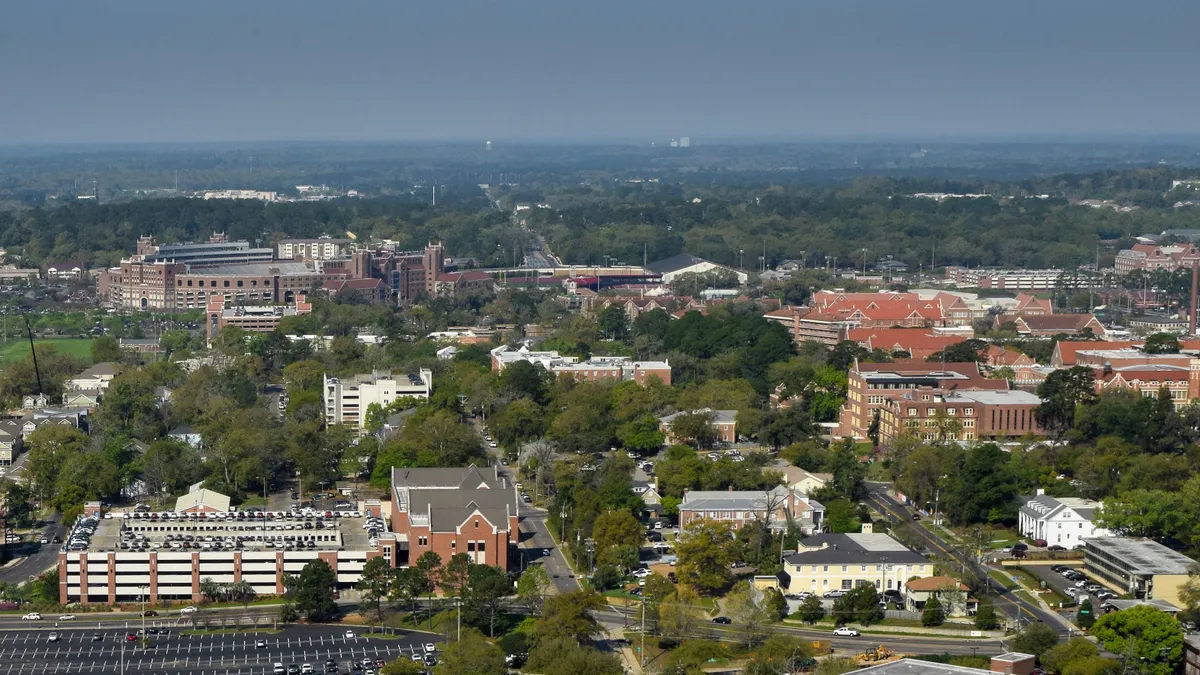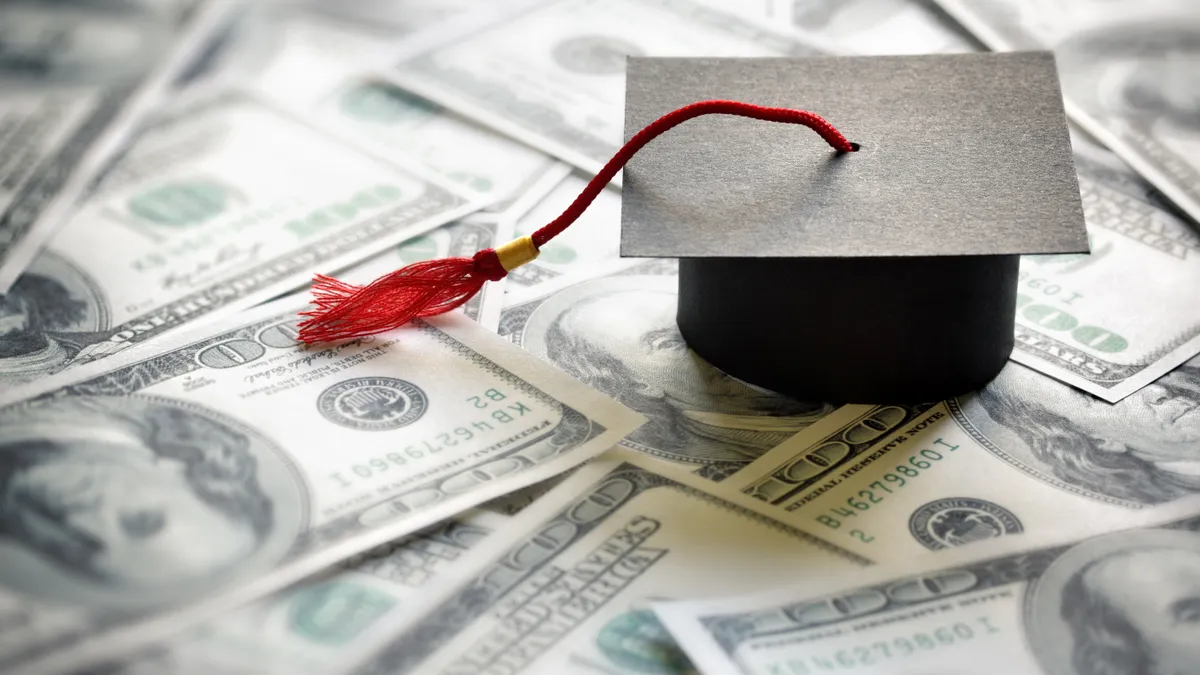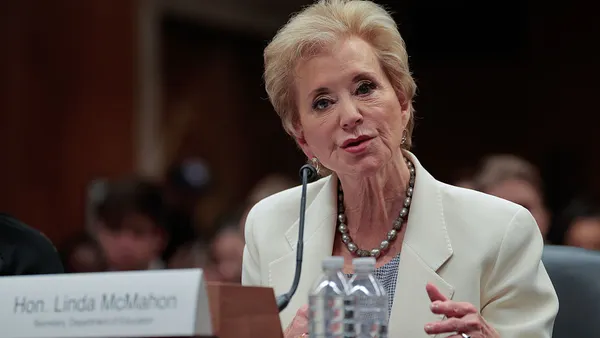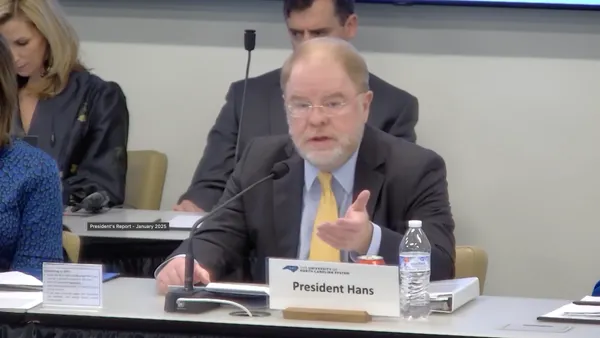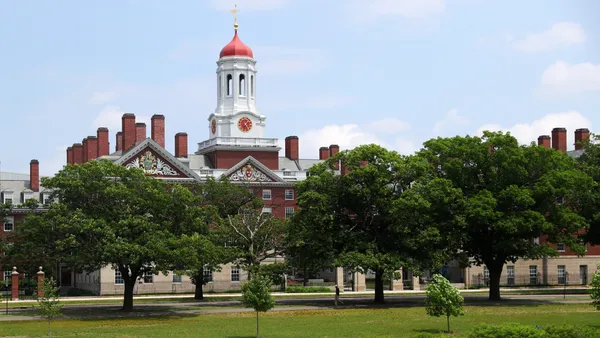Dive Brief:
- Andrew Kelly, director of the Center on Higher Education Reform at the American Enterprise Institute, a conservative think tank, called the narrative of the student loan crisis overblown on CNBC’s Power Lunch.
- CNBC reports Kelly said higher national student debt means more people are going to college, which will set them up to earn more, pay more in taxes, and buy more, but he acknowledged those who drop out with debt before earning a degree are at a distinct disadvantage.
- Economists have pointed to student debt as a major problem for the economy because it will delay investments and retirement savings by young college graduates saddled with debt and potentially keep them from buying homes.
Dive Insight:
Collectively, people with student loans owe $1.3 trillion, and each graduating class has successively higher average debt, among those who take out loans. The problem has been compared to the housing crisis as economists find similarities between subprime mortgage holders and student loan holders on the point of default.
Many of the students who can’t make their loan payments graduate from for-profit colleges, which the Obama administration has gone after aggressively. Gainful employment regulation, which holds technical and vocational schools accountable for the debt-to-earnings ratios of their graduates, is expected to put hundreds of for-profit schools out of business. The eventual reauthorization of the Higher Education Act, too, is expected to focus on new layers of accountability for schools and accreditors.


